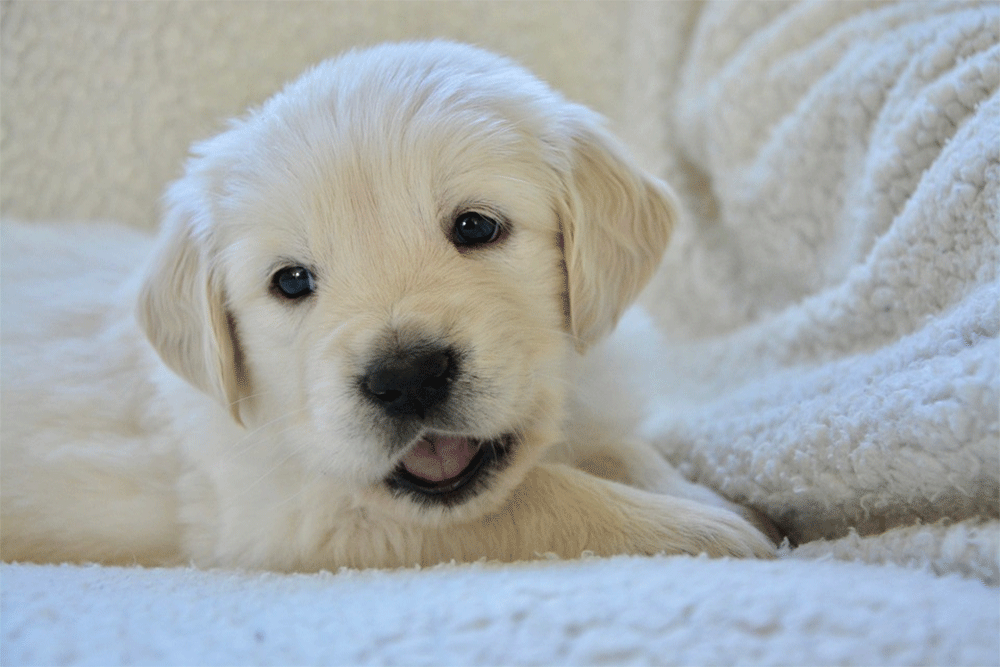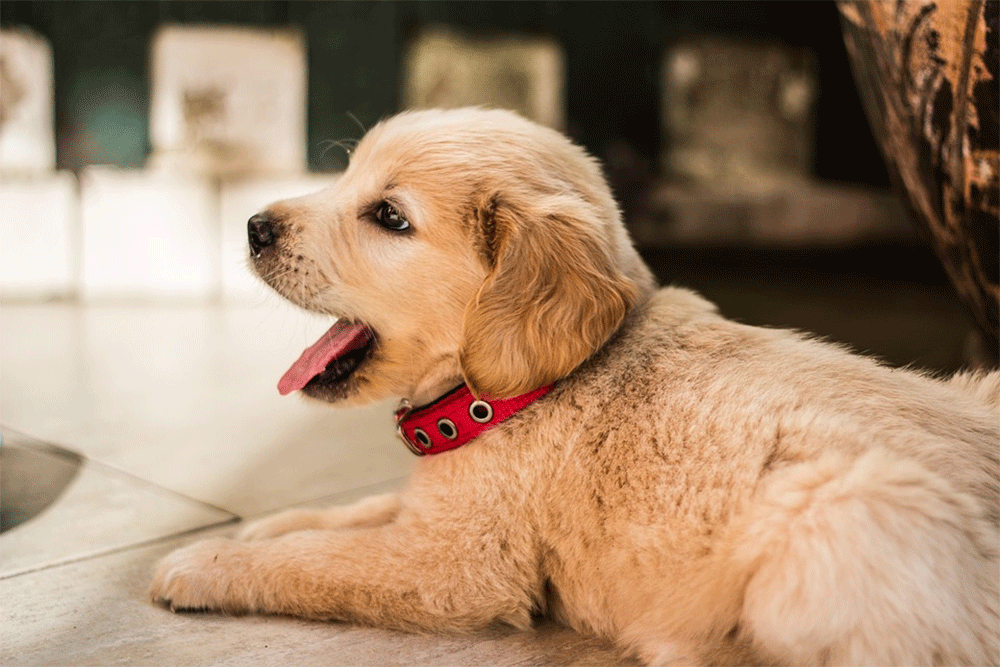Puppies are so fun because they are filled with different quirks and characteristics. Just like human beings, no two puppies are the same, and learning all about your new friend’s personality can be one of the most enjoyable parts of puppy parenting.
But if you are new to owning a puppy, it can be very difficult to tell the difference between cute quirks and things that could be wrong. Even the most experienced of dog owners can sometimes misinterpret their puppy’s quirks for a medical emergency, so there’s no need to worry if you get it wrong. After all, it’s better to be safe than sorry.
One thing that is very common in puppies is hiccups. When your puppy first gets hiccups it can be scary. But when you realize that nothing is wrong, this can be one of the cutest things in the world. However, if you’ve ever had hiccups, which you probably have, you will know what an annoyance they can be. So your dog is probably feeling the same.
While they can be cute at first, it is easy to become concerned about your puppy’s hiccups. Especially when they seem to spend all of their time hiccuping. That’s why we’ve put together this complete guide to why puppies are so prone to hiccups and how you can help ease them. So if your dog regularly gets hiccups, and you’ve wondered why, then keep on reading.

Why do puppies get hiccups?
There is no easy way to pinpoint exactly what it is that has caused your puppy’s hiccups because there are so many causes. However, most of the reasons that puppies get hiccups are caused by the fact that they are still puppies. Due to the fast rate at which they grow, it can be easy to forget just how little your dog is. Especially if they are a larger breed.
But, even though they grow rapidly, your puppy is still a baby, and so they are still learning. This is why some of the most common causes of hiccups in puppies include eating too fast, drinking too fast, and swallowing too much air. Just by watching your puppy for a few minutes, it is easy to see how they might get hiccups from any one of these things.
It can be funny to watch your puppy wolf down their food within seconds of you putting their bowl down, and it can often seem like your puppy has a never-ending appetite. But this is because your puppy is still growing, and they are still evolving from pack-life with their siblings where they had to get their fair share of food. Often, this rush for food or water can cause your puppy to take in too much air and result in them getting hiccups.
So just like human beings, puppies tend to get hiccups from drinking too quickly, eating too quickly or taking in too much air. All of these things can cause the diaphragm to involuntary spasm which will result in hiccups. But hiccups in puppies can also be caused by one other thing, and that is excitement.
All puppies are energetic, and often hyper-active. So, if your puppy starts getting hiccups, but you cannot pin-point drinking or eating too much as the cause, then they have likely got their hiccups from being too excited. They can also seemingly come out of nowhere in the middle of the night, or when your puppy is just living their normal life. But most commonly they are caused by one of the reasons above.
When do hiccups become a concern?
In order to understand when you should take your puppy’s hiccups as a cause for concern, you first need to understand the normal patterns of hiccuping in dogs. Just like in humans, nobody knows the exact reason for hiccups in puppies, however a lot of research has been done into this. So even though we do not know the exact reason why puppies, or anyone, gets hiccups, we do know quite a lot about them.
Generally speaking, puppy hiccups can last for anywhere between 30 seconds and 30 minutes. Sometimes they will get intense hiccups regularly for a few minutes before it passes, and other times your puppy will hiccup once every few minutes. But, if your puppy’s hiccups last for anything longer than 30 minutes then you should speak to your veterinarian.
In most cases, hiccups will simply be hiccups. But in some situations they can be a sign that something isn’t quite right with your dog. The chances of your dog’s hiccups being a sign of something worse are increased if your dog appears distressed or out of character.
Additionally, if your dog appears to be struggling to breathe between hiccups or is wheezing while hiccuping, this is definitely a cause for concern. So if your dog is experiencing any of this you should contact your veterinarian immediately.
Hiccups are usually just something cute that will pass quickly, but they can signal that something is wrong with your dog’s respiratory system. However, it can often be difficult to tell the difference. Some dogs will get hiccups more often than others, and other puppies will not experience them at all. Over time, you will get to know your puppy’s character, and this will improve your ability to tell when something isn’t quite right with them.
But until then, it is always best to be cautious. So, if you think your puppy is experiencing hiccups too often, or something is off about the way they are hiccuping, it is always best to contact your veterinarian. Even if all it does is give you the peace of mind, at least you will know that your puppy is safe and healthy.
How to ease your puppy’s hiccups

Generally, hiccups will not last for longer than a few minutes in your dog. However, some dogs are prone to longer periods of hiccuping than others. So, if your dog is one of these you might be on the lookout for some ways to get rid of their hiccups.
As humans, we have all sorts of strange ways to get rid of hiccups such as holding our breath, dangling upside down, and even jumping out at one another to try to scare the hiccups away. Thankfully, the methods to get rid of hiccups in dogs are much less weird, so let’s look at what they are.
-
Rub your Puppy’s Belly
One of the best ways to ease hiccups in dogs is to rub their belly. This is a good thing because for most dogs there is nothing they like better than a good belly rub, so you can ease your dog’s hiccups while keeping them happy at the same time.
The diaphragm is a muscle, so one of the best ways to ease hiccups is by relaxing, and there’s no better way to get your dog to chill out than by rubbing their stomach.
-
Play with them
One common method of stopping hiccups in humans is to use distraction. With humans, sometimes we can become so fixated on the hiccups that they stick around. Who knows if dogs think about their hiccups, but distraction does seem to make them go away.
So if your dog has persistent hiccups, playtime is a great way to ease them. The majority of dogs playtime revolves around exercise and this is a great way to even out your dog’s breathing patterns and get rid of their hiccups.
-
Train your Dog to eat slower
As we have established, eating too fast is one of the most common causes of hiccups in dogs. So, a preventative measure to stop your dog’s hiccuping would be to train them to eat slower. This is often easier said than done, but it is definitely something that you should work on while your puppy is still young.
One of the best ways to do this is to avoid exciting your dog near meal time. You could also invest in a slow release food bowl to prevent your dog wolfing food down too quickly.
-
Train your Dog to drink slower
Likewise, you can prevent hiccups by training your dog to drink more slowly. You can do this by only putting a small amount of water down in the bowl at any one time.
Water can also help ease hiccups, so always encourage your dog to drink water when they get hiccups.
-
NEVER try to hold your dog’s breath
This is an old wives tale in humans, but attempting to force your dog to hold their breath can be extremely dangerous.
Not only this, but it might have the opposite result and could cause your dog to experience more hiccups rather than prevent them. It could also traumatize your puppy, so you should never do this.
Summary
In short, this has been a complete guide to hiccups in puppies. So if you are concerned about your dog’s hiccups, check out this guide.
